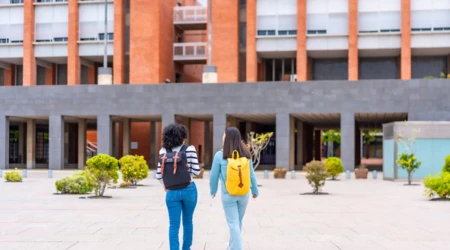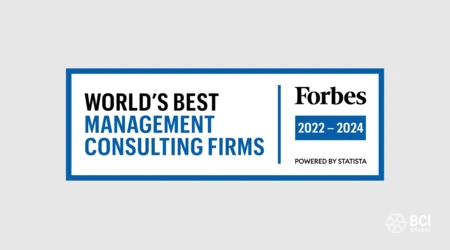News
49 found items
News

15 January 2025
Frank Hofstee has joined as Partner Supply Chain Advice
Being able to contribute to the further expansion of BCI Global in my new role as partner is a great challenge. This firm has an excellent reputation
News

06 January 2025
'Dynamic' science park sector growth driven by quest tor talent
Prospects for the science park sector are good, driven by demand from startup companies looking for thriving R&D environments inhabited by like-minded people
News

11 December 2024
We are Partners! But are you really?!
We are here to dive into the world of partners in the business environment. With a CMO, with a packaging company, with your logistics provider. The question here is: what is real partnership, what is the essence of true partnerships, and why do we seek business partners?
News

05 December 2024
BCI Global's Transport Monitor
Road and parcel transport costs on the rise again with gross rate increase expectations of 4-7% for road and 5% for parcel next year. Ocean freight and air freight remain very volatile, according to BCI Global’s Transport Monitor
News

05 December 2024
Søstrene Grene selects Venlo, The Netherlands as location for their new distribution center
Danish home decoration retailer Søstrene Grene has selected Venlo, the logistics hotspot location in The Netherlands, as the location for their new distribution center of 45.000 sqm
News

04 December 2024
Semicon Investments Surge
Demand for chips will undoubtedly accelerate in the future. But how to guarantee risk-free supply? And what does that mean for the strategy of individual semiconductor companies?
News

04 December 2024
Coping with Rising Trade Tariffs
Trade restrictions are on the rise all over the world. President Trump will probably give a push to higher import tariffs, provoking retaliation measures of other trading blocs like Europe and Japan.
News

28 November 2024
Forbes Magazine recognizes BCI Global as one of the best consulting firms in the world 2024
The renowned international business magazine Forbes Magazine has announced that also this year the economic, logistics and location consulting firm BCI Global is one of the best consulting firms in the world.
News

29 October 2024
Logistics operators now have sustainability firmly on the agenda
ESG factors play an increasing role in the logistics industry and in the logistics real estate markets. But it is not only about the E of Environment.
News

29 October 2024
Supply chain executives’ ambitions extend further than end-to-end visibility
Only less than 30% of the internationally operating companies currently have end-to-end supply chain visibility. This is one of the surprising results of a survey of BCI Global and Supply Chain Media among leading supply chain executives.
News

31 January 2024
Logistics real estate markets in Europe are expected to stabilize in 2024 after very disappointing 2023
After a sharp decrease in 2023 with 26% of the take up of logistics real estate in 11 European markets, the take up in 2024 will stabilize. This is one of the conclusions of two studies Buck Consultants International / BCI Global published this morning.
News

15 December 2023
Carbon Border Adjustment Mechanism (CBAM): Why? How? What?
The EU’s Carbon Border Adjustment Mechanism (CBAM) is a tool to put a fair price to the lifecycle of carbon intensive goods imported into the EU. As per October 2023, CBAM imposes a reporting obligation and carbon tax for companies importing designated goods, full implementation expected on January 1st, 2026.
News

04 December 2023
24 for ’24: Emerging Tech Hubs Around the World
In an exclusive report, the expert team at Netherlands-based BCI Global takes a close look at two dozen ‘out-of-the-box’ cities for future software development and support centers.
News

17 November 2023
European road and parcel freight rates will increase with 8% in the next six months
European road and parcel freight rates will increase with 8% in the next six months. Global ocean freight rates are stable at low level, but air freight rates will further decrease with another 5%. These are one of the main conclusions from the Transport Monitor of leading supply chain and logistics consulting company BCI Global. For t...
News

28 September 2023
Reshoring to US and Europe accelerates, now also serving CO2 emission reduction objectives
Reshoring accelerates as American and European companies want to de-risk their supply chain from geopolitical developments and supply chain disruptions. This concludes supply chain and location strategy consulting firm BCI Global in a very extensive study (supported by SCM).
News

21 September 2023
Forecast: More Regional R&D Centers in Europe, North America and Asia
The next years more companies will set-up R&D centers in the major regions of the world (e.g. Europe, North America, Asia). This expectation was presented at the World Conference of the International Association of Science Parks (IASP) in Luxembourg by René Buck, CEO BCI Global.
News

11 July 2023
BCI Global Announces ‘DE-5’ Proprietary Framework for Value Chain Management
One of the most influential financial and economic platforms in the world Bloomberg paid attention today to our new DE-5 Proprietary Framework for Value Chain Management. The framework aims to reduce risk in five major areas linked to the operations of many multinational companies. While there are vast differences between various companies and i...
News

07 June 2023
Selecting the right logistics company using the Top-100 Logistics Service Providers 2023 in the Netherlands
The Netherlands is a major logistics gateway to the ever growing European market of more than 500 million customers. But where do you start in finding the right Dutch logistics service provider for your European distribution operations? BCI Global offers you the annual overview of the top-100 Logistics Service providers in the Netherlands as a c...
News

10 May 2023
Boom expected of 250 New Batteries Plants in Europe
More than 250 new plants of battery producers and their suppliers will be established in Europe in the next 10 years. That concludes international consulting firm Buck Consultants International in an analysis of the future European batteries market, presented today at the Transport Logistic exhibition in Munich.
News

03 April 2023
50 Most Admired Companies to Watch
BCI Global among America's Most Admired Companies to Watch: California based CIO Bulletin, the leading platform for Business & Information Technology leaders, has recognized BCI Global in its latest issue as one of Americas 50 Admired Companies to Watch 2023.
News

25 January 2023
Greening end-to-end supply chains
Greening end-to-end supply chains is possible without jeopardizing competitive cost levels and customer service requirementsIntegrating carbon footprint reductions is in many supply chains a realistic objective, without a huge cost increase or lowering the customer service level. An end-to-end approach to ‘green’ inbound transportation, the ware...
News

19 December 2022
Decentralize production and logistics - A sermon
In recent decades, supply chains have become longer and more complex due to globalization. Access to global markets and the ability to manufacture in low-wage countries with low or no import taxes have produced supply chains that are very efficient, but not resilient. This lack of resilience has become abundantly clear in the past two years, due...
News

29 November 2022
BCI's Transportation Monitor – enables to manage transportation cost and provides 20 measures to reduce scope 3 carbon emissions
European road transport rates for parcels & pallets continue to increase with 5 to 10+%. Ocean rates are still going south, while Airfreight rates remain extremely volatile. Cargo owners shall maintain different procurement strategies for securing competitive pricing. In addition the European Commission adopted new Corporate Sustainability R...
News

12 October 2022
Round table Fashion and Luxury industry
Supply Chain challenges caused by demand volatility, labor scarcity and quality of 3PL performance were discussed including various measures to deal with these, at our roundtable in Fashion and Luxury industry. On Wednesday September 5th we organized and moderated a round table for VP’s in the Fashion and Luxury e-commerce industry. Michael Kors...

